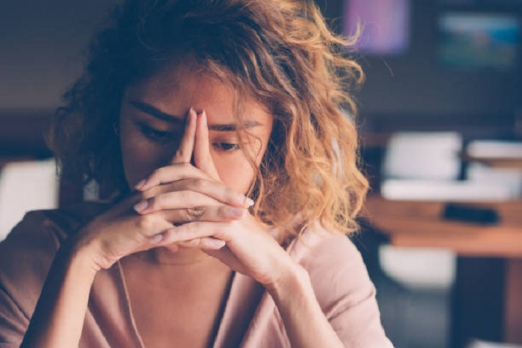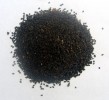How much and why is hemoglobin important for the body

April,3 Kathmandu.According to the World Health Organization (WHO), anemia is a serious health problem worldwide. About 40% of children aged 6 months to 5 years, 37% of pregnant women and 30% of women aged 15 to 49 are affected by anemia.
According to the Institute for Health Metrics and Evaluation, around 2 billion people in the world are affected by anemia. This means that about a quarter of the world's population is suffering from anemia. This figure is even higher than the number of diabetes patients.
Anemia can cause a lack of oxygen in the blood in the body. Due to which the body does not get enough energy. Due to this, the growth and development of the body can stop. Hair can fall and it can have a bad effect on the health of the mother and child during pregnancy. If anemia is severe, even body organs can fail.
What is anemia?
Anemia is a condition in which there is a deficiency of red blood cells or hemoglobin in the body. Blood contains a special protein called hemoglobin, which carries oxygen throughout the body through the blood stream.
How does hemoglobin work?
Dr. says that hemoglobin acts like an oxygen vehicle, which delivers oxygen to every cell of the body and expels carbon dioxide.
Why does anemia occur?
The biggest cause of anemia is the lack of hemoglobin in the body, which works to deliver oxygen to the body. Dr. Mriganka Bohra explains all the reasons for this-
Iron deficiency- Iron is used to make hemoglobin. If there is a persistent iron deficiency in the diet, anemia can occur.
Reason : Bad diet, drinking too much tea-coffee, not eating nutritious food.
Anemia- If too much blood is lost from the body due to any disease or injury, anemia can occur.
Reason: Bleeding due to injury, heavy periods, bleeding from ulcers in the stomach or intestines.
Vitamin B12 and folic acid deficiency- These nutrients help in making red blood cells. Their deficiency can lead to low hemoglobin.
Reason: Not eating green vegetables. Eating less fruits, milk and eggs.
Any disease or infection- Due to some diseases the body reduces blood production. This can reduce hemoglobin.
Reasons: Kidney disease, thyroid, cancer, thalassemia, sickle cell anemia.
Lack of nutrition during pregnancy- The need for blood increases during pregnancy because the baby growing in the womb also needs blood.
Reason: If proper diet is not taken or nutritious food is not available during this period, anemia can occur.
Who is most at risk of anemia?
Generally, women are more prone to anemia than men. Apart from this, small children and teenagers can also face the problem,
What is the treatment for anemia?
Dr. says that the treatment of anemia depends on its cause. Blood test is done to find out the cause of anemia. Treatment is given on that basis. In most cases, deficiency of iron, vitamin B12 and folic acid is the main reason for this. In such cases, supplements can be given and nutritious diet can be advised.
However, in some cases an autoimmune disease or chronic disease can also cause anemia. In such cases, the patient is given a blood transfusion and the disease is treated.
What are the measures to prevent anemia?
Dr. says that to prevent anemia, it is most important to take a balanced diet. Include things rich in iron and vitamins in it. If possible, get a regular CBC blood test done. This can detect hemoglobin. Apart from this, a healthy lifestyle is also very important. If there are signs of constant weakness and breathing problems, then consult a doctor.
Eat iron-rich foods: Spinach, fenugreek, broccoli, beetroot, pomegranate, apple, jaggery and dry fruits.
Take a diet rich in vitamin B12 and folic acid: milk, eggs, fish, pulses, green leafy vegetables, bananas and sprouted grains.
Also include vitamin C: Orange, lemon, guava, tomato and amla.
Common questions and answers related to anemia
What is the haemoglobin level of a healthy person?
The normal level of hemoglobin in the body depends on age, gender and physical condition. Generally, these are the standards: For men: Between 13.8 to 17.2 grams/deciliter (g/dL).
For women: Between 12.1 and 15.1 g/dL.
For children: Between 11 and 16 g/dL.
Does anemia cause weight gain or loss?
Anemia does not directly affect weight. However, it can reduce appetite, which can lead to weight loss. In some cases, people become less active due to weakness and lethargy, which can also lead to weight gain.
Does anemia also affect the brain?
Yes, anemia does not allow the brain to get enough oxygen, which can lead to difficulty concentrating, poor memory, and irritability.
Can anemia cause hair loss?
Yes, when there is iron deficiency in the body, the hair roots do not get adequate nutrition, due to which the hair starts falling and becomes weak.
If there is mild anemia, can one live a normal life?
Yes, mild anemia can be cured with proper diet and supplements. But it should not be ignored, because if not treated on time, it can take a serious form.
Share this with your friends:
प्रत्येक महिला पुरुषभन्दा कमजोर छैनन् : कमला भासिन
 नरेश ज्ञवाली ►
भदौ २७, काठमाडौं। दक्षिण एसियामा लैङ्गिक समानता, शिक्षा, गरिबी निवारण, मानवअधिकार र शान्तिका...
नरेश ज्ञवाली ►
भदौ २७, काठमाडौं। दक्षिण एसियामा लैङ्गिक समानता, शिक्षा, गरिबी निवारण, मानवअधिकार र शान्तिका...
पुरुष कलमले पूर्ण नारीलाई लेख्न सक्दैन
 काठमाडौं। मान्छेहरू कडा भएर बोलेको भन्दा नरम भएर बोलेको मनपर्छ । खरा कुराभन्दा नरम, सरस र सलिल कुराहरू मनपर्छ । तर...
काठमाडौं। मान्छेहरू कडा भएर बोलेको भन्दा नरम भएर बोलेको मनपर्छ । खरा कुराभन्दा नरम, सरस र सलिल कुराहरू मनपर्छ । तर...
कालो तिलले कम्मर दुखेको र अनुहारमा भएको पोतोको उपचार गर्छ
 काठमाडौं । कालो तिल अथवा तिलबाट प्राप्त हुने बिऊ तेल उत्पादनको लागि प्रयोग गरिन्छ । अनुहारमा चायाँ, पोतो वा दाग,...
काठमाडौं । कालो तिल अथवा तिलबाट प्राप्त हुने बिऊ तेल उत्पादनको लागि प्रयोग गरिन्छ । अनुहारमा चायाँ, पोतो वा दाग,...
दुबईमा पहिलो पटक नेपाली कल्चरल पहिरनको फेसन शो सम्पन्न
 काठमाडौं। गत माघ २८ गते दुबईमा नेपाली कल्चरल पहिरनको फेसन शो पहिलो पटक फेसन फ्युजन २०१७ सम्पन्न भयो । एनआरएन...
काठमाडौं। गत माघ २८ गते दुबईमा नेपाली कल्चरल पहिरनको फेसन शो पहिलो पटक फेसन फ्युजन २०१७ सम्पन्न भयो । एनआरएन...
उमेर अनुसारको हुनुपर्छ खान्की, अनि मात्र मानिस स्वस्थ रहन्छ
 काठमाडौं। पोषणको आवश्यकता उमेरअनुसार परिवर्तन हुन्छ । उमेरको हरेक अवस्थामा स्वयंलाई स्वस्थ राख्न शरीरलाई...
काठमाडौं। पोषणको आवश्यकता उमेरअनुसार परिवर्तन हुन्छ । उमेरको हरेक अवस्थामा स्वयंलाई स्वस्थ राख्न शरीरलाई...
मुलुकका सम्मानित पदमा महिलाको उपस्थिति, सबैका लागि आशाको ढोका उघारे
 काठमाडौं। अहिले नेपालका तीनवटै अंगका प्रमुख महिला भएकाले नेपाली राजनीतिक क्षेत्रमा मात्र नभएर सामाजिक...
काठमाडौं। अहिले नेपालका तीनवटै अंगका प्रमुख महिला भएकाले नेपाली राजनीतिक क्षेत्रमा मात्र नभएर सामाजिक...
यी भोजन खाए छाला सुन्दर हुन्छ !
 काठमाडौं। स्ट्रबेरी : यो भिटामिन सीले भरपुर हुन्छ । भिटामन सीले छालालाई चाउरीबाट जोगाएर सधैं जवान राख्न मद्दत...
काठमाडौं। स्ट्रबेरी : यो भिटामिन सीले भरपुर हुन्छ । भिटामन सीले छालालाई चाउरीबाट जोगाएर सधैं जवान राख्न मद्दत...
लोग्नेमान्छेको जात केटी देखेपछि.....
 काठमाडौं । शान्ताको विवाह भएको पाँच वर्ष बितिसक्दा पनि छोराछोरी भएनन् बरु उनलाई एकाएक ब्लड क्यान्सर भयो । समयले...
काठमाडौं । शान्ताको विवाह भएको पाँच वर्ष बितिसक्दा पनि छोराछोरी भएनन् बरु उनलाई एकाएक ब्लड क्यान्सर भयो । समयले...
मनोसामाजिक समस्या के हो?
 साउन ११, काठमाडौं । मनोसामाजिक समस्या भन्नाले मन र समाज वीच हुने समस्या हो । यो जो कोही व्यक्तिलाई पनि हुन सक्छ ।...
साउन ११, काठमाडौं । मनोसामाजिक समस्या भन्नाले मन र समाज वीच हुने समस्या हो । यो जो कोही व्यक्तिलाई पनि हुन सक्छ ।...
महिलाको दोस्रो विवाहको कुरा सुन्दा पढेलेखेकैले अनुहार बिगार्छन्
 काठमाडौं। दोस्रो विवाहबारे मैले नसोचेको, नचाहेको होइन । तर, म मेरा आत्मीयसँग फेरि विवाह गर्नेबारे कुरा गर्छु,...
काठमाडौं। दोस्रो विवाहबारे मैले नसोचेको, नचाहेको होइन । तर, म मेरा आत्मीयसँग फेरि विवाह गर्नेबारे कुरा गर्छु,...










